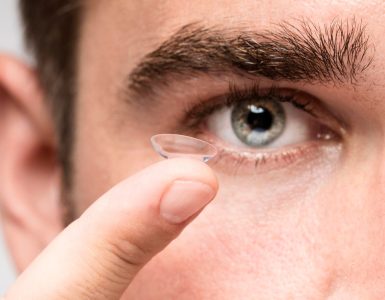Our eyes are exposed to various environmental factors every day, some of which can have a significant impact on our eye health. Pollution and dry indoor air are two common environmental factors that can contribute to discomfort and potential eye problems. In this article, we will explore the effects of these factors on eye health and discuss ways to protect and alleviate symptoms.
How does pollution affect eye health?
Pollution, such as smog, dust, and airborne particles, can negatively affect our eyes. When we are exposed to high levels of pollutants, they can irritate the eyes, leading to symptoms like redness, itching, burning, and excessive tearing. Prolonged exposure to pollution may also increase the risk of developing chronic conditions such as dry eye syndrome, conjunctivitis, and even cataracts. Those who live in urban areas or work in industrial settings are particularly susceptible.
How does dry indoor air affect eye health?
During the colder months or in areas with dry climates, indoor air tends to lack moisture, leading to dryness and discomfort in the eyes. Dry indoor air can cause the tear film to evaporate more rapidly, resulting in dry eye symptoms like grittiness, stinging, blurred vision, and excessive tearing. Additionally, prolonged exposure to dry air can worsen existing eye conditions, such as meibomian gland dysfunction or blepharitis.
How can you protect your eyes against pollution and indoor dry air?
- Use protective eyewear: When outdoors in polluted areas or engaging in activities that may expose your eyes to airborne particles, wear wraparound sunglasses or goggles to shield your eyes.
- Improve indoor air quality: Use humidifiers or air purifiers to add moisture to the air and filter out pollutants, improving the overall humidity and air quality indoors.
- Take regular breaks: If your work or activities involve prolonged screen time, remember to take frequent breaks to rest your eyes and blink regularly to keep them moist.
- Use artificial tears: Lubricating eye drops can help alleviate dryness and provide temporary relief. Consult an eye care professional to determine the most suitable option for you.
- Maintain good hygiene: Cleanse your eyelids daily with a gentle cleanser to remove any irritants and reduce the risk of eye infections.
Being mindful of the environmental factors that can impact our eye health is crucial for maintaining optimal vision and comfort. Pollution and dry indoor air can contribute to eye discomfort and increase the risk of developing eye conditions. By taking proactive steps to protect our eyes and mitigate the effects of these factors, such as wearing protective eyewear and improving indoor air quality, we can safeguard our precious vision and enjoy optimal eye health.
Remember, regular eye exams and consultations with an eye care professional are vital for early detection and treatment of any eye-related issues.
Sources:
- American Academy of Ophthalmology (AAO)
- National Eye Institute (NEI)
- Mayo Clinic




